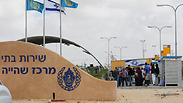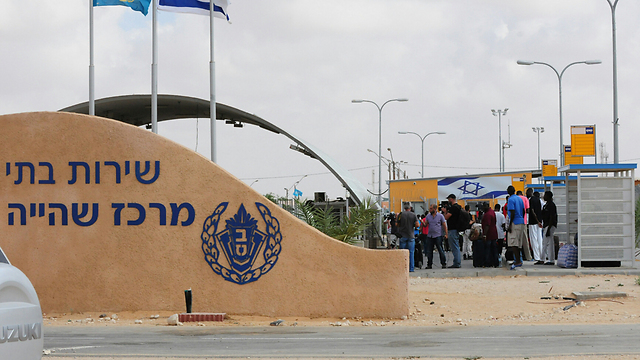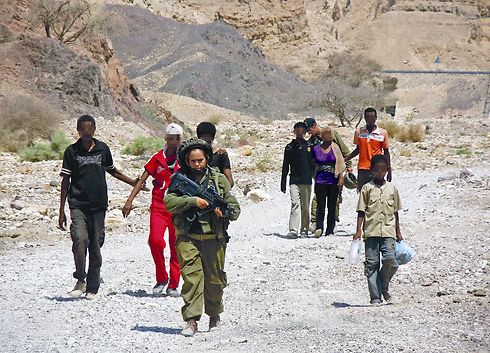
According to HRM, Israel continues to employ this method despite statements by the UN High Commissioner for Refugees (UNHCR) referring to the practice as being an "exceptional measure that can only be justified by a legitimate purpose."
Most of the detained migrants and asylum seekers are from Eritrea and Sudan, countries which Israel is prevented from deporting their citizens due to commitments to international law.
Detainees are held in four facilities—Holot, Saharonim, Giv'on and Yahalom.
The report, which also includes interviews and testimonies from migrants and asylum seekers, claims that there are currently some 3,000 detainees. Many have been detained for months or even years.
According to figures from HRM, at least 33 people have been held for more than two years, 25 people more than three years, 18 more than four years, 10 more than five years and 5 people have been held for more than six years.
Additionally, the report describes inadequate translation and medical services, a shortage of hygienic products and pressure by the Population and Immigration Authority for the migrants to leave.
The report however, also highlights positive developments, including an improvement in general conditions such as food, accommodations and religious observance.
The report advocated a series of recommendations, including the prevention of detention, prioritizing humane treatment, and preventing the detention of torture survivors and refugees suffering from post-traumatic stress or other mental disorders.
In response to the HRM report, the Israel Prison Service said, "In regards to the claims made concerning the holding conditions of migrants and asylum seekers, the issues are dependent upon four legal petitions scheduled to be discussed next week in court. All answers were given by the state a few months ago."
(Translated and edited by Fred Goldberg)


















